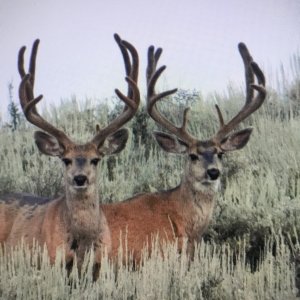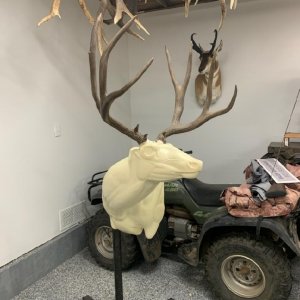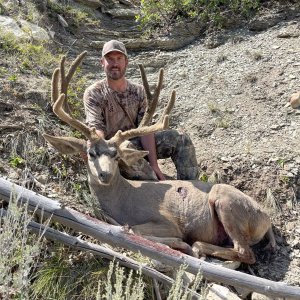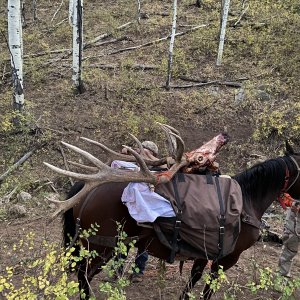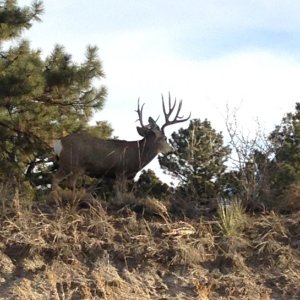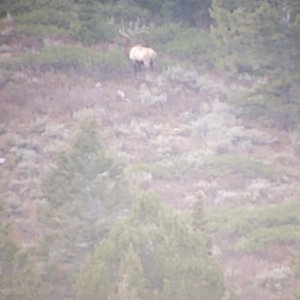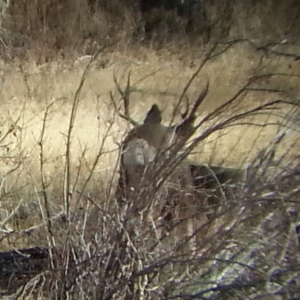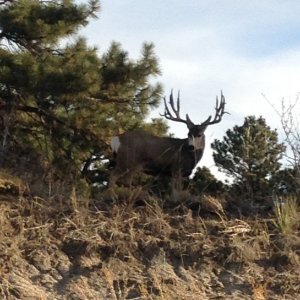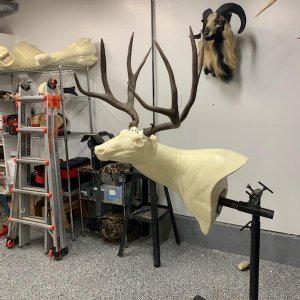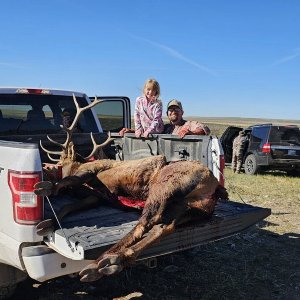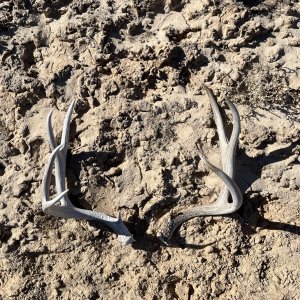I am interested in knowing how the fish and game systems really work. When fish and game departments raise fees are they really just trying to rake in the dough or are they trying to get money for programs that they want to implement that aren't funded through other sources? Do the big wigs get a raise when the fee increases go into effect? And how do you get to be a big wig in the first place? Are you voted in or do you start as a grunt on the bottom and work your way up? If a sportsman was truly concerned about how a game department is being run could he campaign and be voted into a position or would he have to have a doctorate degree in wildlife resource management and 20 years experience? I know these are a lot of questions, but I don't know the answers. Perhaps someone could enlighten me. Thanks.
You are using an out of date browser. It may not display this or other websites correctly.
You should upgrade or use an alternative browser.
You should upgrade or use an alternative browser.
How does it really work?
- Thread starter locofife
- Start date
P
PronghornHunter
Guest
In Wyoming they raise prices so they have more money to manage wolves and bears.I say this with sarcasm.
S
Salmonfg
Guest
All states vary to some degree depending on how the state legislature wrote laws for the agency, but I can give some perspective on your questions. Right up front, I'm a regional wildlife manager for the Idaho Department of Fish and Game.
"When fish and game departments raise fees are they really just trying to rake in the dough or are they trying to get money for programs that they want to implement that aren't funded through other sources?"
Most state wildlife agencies are unique within their state because they get little or no funding from state taxes (compared to social services, administration, etc.). That means much of the state-generated funding comes from fishing and hunting licenses. There are federal programs where states also get money for fish and wildlife programs (Pittman-Robertson is the big one for wildlife). BUT, license fees are usually set by the state legislature and, for whatever reason, they are rarely in favor of increased fees. Last session, Idaho requested a 14% increase, but was authorized for 10%. Most states get into a mode of only being able to obtain legislative approval for increases once every 5-6 years. Do you remember what gas cost 5-6 years ago? If hunters want to see officers in the field at the same level, there has to be more money to pay for the fuel to get them there. In the last 5 years the cost per hour of flying helicopter surveys has gone from $540 to $680 for the helicopter I use. That means where I used to be able to fly about 200 hours of survey time, this year I can fly less than 160 hours. So the short answer is, agencies are trying to keep up with inflation and implement programs.
"Do the big wigs get a raise when the fee increases go into effect?"
The above should have helped answered this one. Part of the agency budget is funding for wages and benefits - like license fees, state employee wages are set by some part of the state government that ultimately must be approved by the legislature. According to a legislative committee here in Idaho, state employee wages are currently 16% below market value (i.e., I'm getting paid 16% less than someone doing similar work in the private sector). So, yes part of fee increases goes toward wages and benefits to keep up with inflation and keep state agencies competitive in hiring good staff, but there are no "raises for the bigwigs." All wages are essentially set by state law.
And how do you get to be a big wig in the first place? Are you voted in or do you start as a grunt on the bottom and work your way up? If a sportsman was truly concerned about how a game department is being run could he campaign and be voted into a position or would he have to have a doctorate degree in wildlife resource management and 20 years experience?
In most states there are 2 entities that "manage" wildlife: the state fish and game agency, and a state fish and game Commission or Board. Within the agency, virtually everyone is a state employee who is hired under state laws based on minimum qualifications (and a whole bunch of state law and requirements, again set by some other part of state government like the legislature or governor's office). About the only exception is the agency director who is often hired/appointed by the Commission. But his/her wages are still set by state law and they are still state employees. Sometimes section head positions "serve at the pleasure of the Director" meaning they may lose some of the employment rights afforded to employees at lower levels. So, no you can't be voted into a position in the agency, and most upper level employees do have advanced degrees and many years of experience. In my position, I have masters and Ph.D. degrees in wildlife science and have worked for state agencies (in 3 states) for about 12 years now.
The other entity, the Fish and Game Commission, is made up of people from various walks of life, but typically have no specific training in fish or wildlife science. Commissioners are usually appointed by the Governor and then must be approved the state legislature. So they are not voted in either, but someone could "campaign" to the Governor's office to be appointed. These political appointees serve fixed terms determined by state law. The role of the Commission is to set policy direction for the agency and approve rules and regulations covering fish and wildlife. For example, hunting regulations (bag limits, season dates, permit numbers, etc.) are ultimately set by the Commission based on input from the agency AND the public. They also determine/approve other agency actions such as land purchases, budgets, species plans, and many other items. Essentially, Commissions are the public's representation in fish and wildlife management and they are very influential in what that management looks like.
Hope this helps explain a little about how it works.
Tom Keegan
"When fish and game departments raise fees are they really just trying to rake in the dough or are they trying to get money for programs that they want to implement that aren't funded through other sources?"
Most state wildlife agencies are unique within their state because they get little or no funding from state taxes (compared to social services, administration, etc.). That means much of the state-generated funding comes from fishing and hunting licenses. There are federal programs where states also get money for fish and wildlife programs (Pittman-Robertson is the big one for wildlife). BUT, license fees are usually set by the state legislature and, for whatever reason, they are rarely in favor of increased fees. Last session, Idaho requested a 14% increase, but was authorized for 10%. Most states get into a mode of only being able to obtain legislative approval for increases once every 5-6 years. Do you remember what gas cost 5-6 years ago? If hunters want to see officers in the field at the same level, there has to be more money to pay for the fuel to get them there. In the last 5 years the cost per hour of flying helicopter surveys has gone from $540 to $680 for the helicopter I use. That means where I used to be able to fly about 200 hours of survey time, this year I can fly less than 160 hours. So the short answer is, agencies are trying to keep up with inflation and implement programs.
"Do the big wigs get a raise when the fee increases go into effect?"
The above should have helped answered this one. Part of the agency budget is funding for wages and benefits - like license fees, state employee wages are set by some part of the state government that ultimately must be approved by the legislature. According to a legislative committee here in Idaho, state employee wages are currently 16% below market value (i.e., I'm getting paid 16% less than someone doing similar work in the private sector). So, yes part of fee increases goes toward wages and benefits to keep up with inflation and keep state agencies competitive in hiring good staff, but there are no "raises for the bigwigs." All wages are essentially set by state law.
And how do you get to be a big wig in the first place? Are you voted in or do you start as a grunt on the bottom and work your way up? If a sportsman was truly concerned about how a game department is being run could he campaign and be voted into a position or would he have to have a doctorate degree in wildlife resource management and 20 years experience?
In most states there are 2 entities that "manage" wildlife: the state fish and game agency, and a state fish and game Commission or Board. Within the agency, virtually everyone is a state employee who is hired under state laws based on minimum qualifications (and a whole bunch of state law and requirements, again set by some other part of state government like the legislature or governor's office). About the only exception is the agency director who is often hired/appointed by the Commission. But his/her wages are still set by state law and they are still state employees. Sometimes section head positions "serve at the pleasure of the Director" meaning they may lose some of the employment rights afforded to employees at lower levels. So, no you can't be voted into a position in the agency, and most upper level employees do have advanced degrees and many years of experience. In my position, I have masters and Ph.D. degrees in wildlife science and have worked for state agencies (in 3 states) for about 12 years now.
The other entity, the Fish and Game Commission, is made up of people from various walks of life, but typically have no specific training in fish or wildlife science. Commissioners are usually appointed by the Governor and then must be approved the state legislature. So they are not voted in either, but someone could "campaign" to the Governor's office to be appointed. These political appointees serve fixed terms determined by state law. The role of the Commission is to set policy direction for the agency and approve rules and regulations covering fish and wildlife. For example, hunting regulations (bag limits, season dates, permit numbers, etc.) are ultimately set by the Commission based on input from the agency AND the public. They also determine/approve other agency actions such as land purchases, budgets, species plans, and many other items. Essentially, Commissions are the public's representation in fish and wildlife management and they are very influential in what that management looks like.
Hope this helps explain a little about how it works.
Tom Keegan
Similar threads
- Replies
- 10
- Views
- 985
- Replies
- 39
- Views
- 1k

